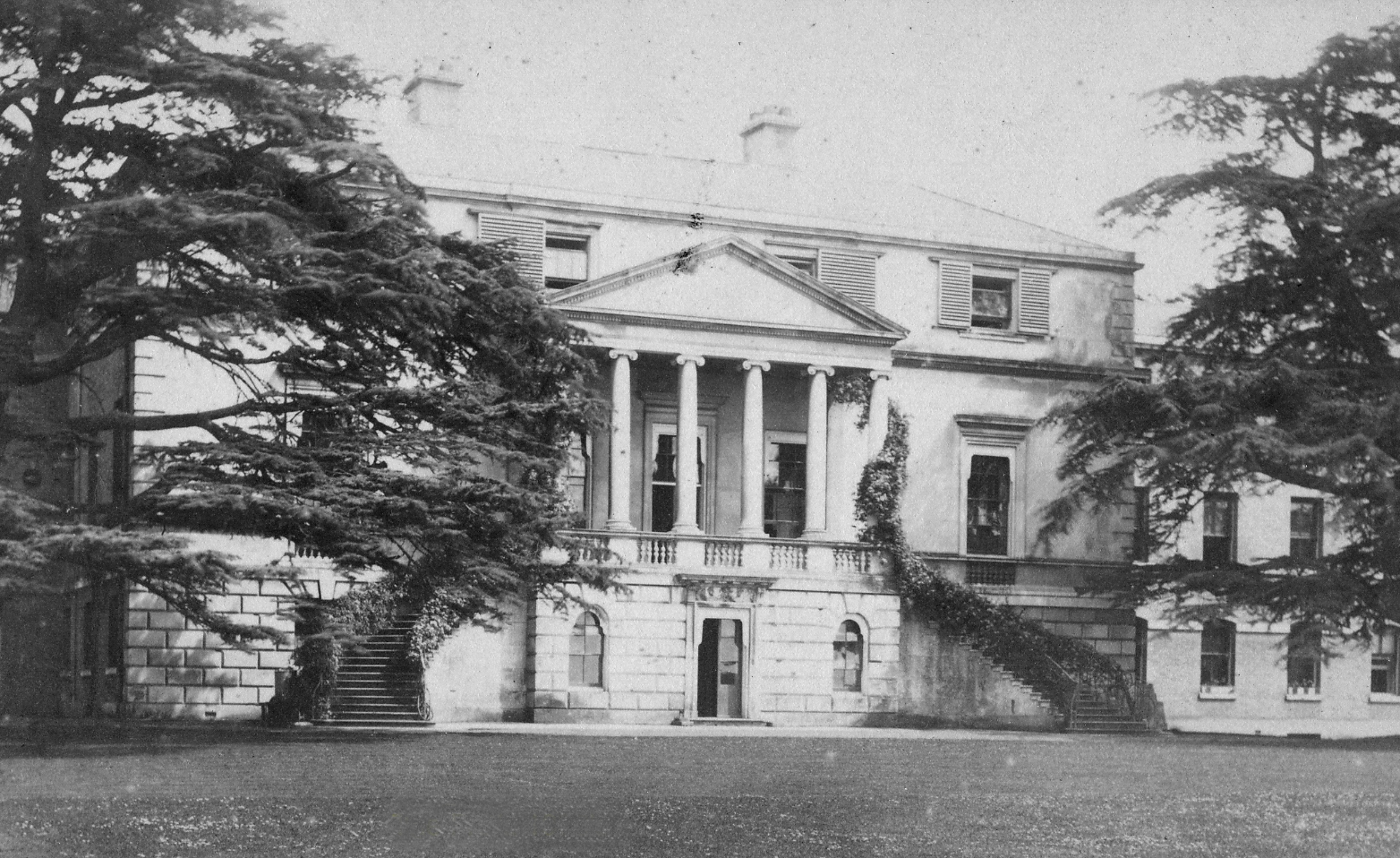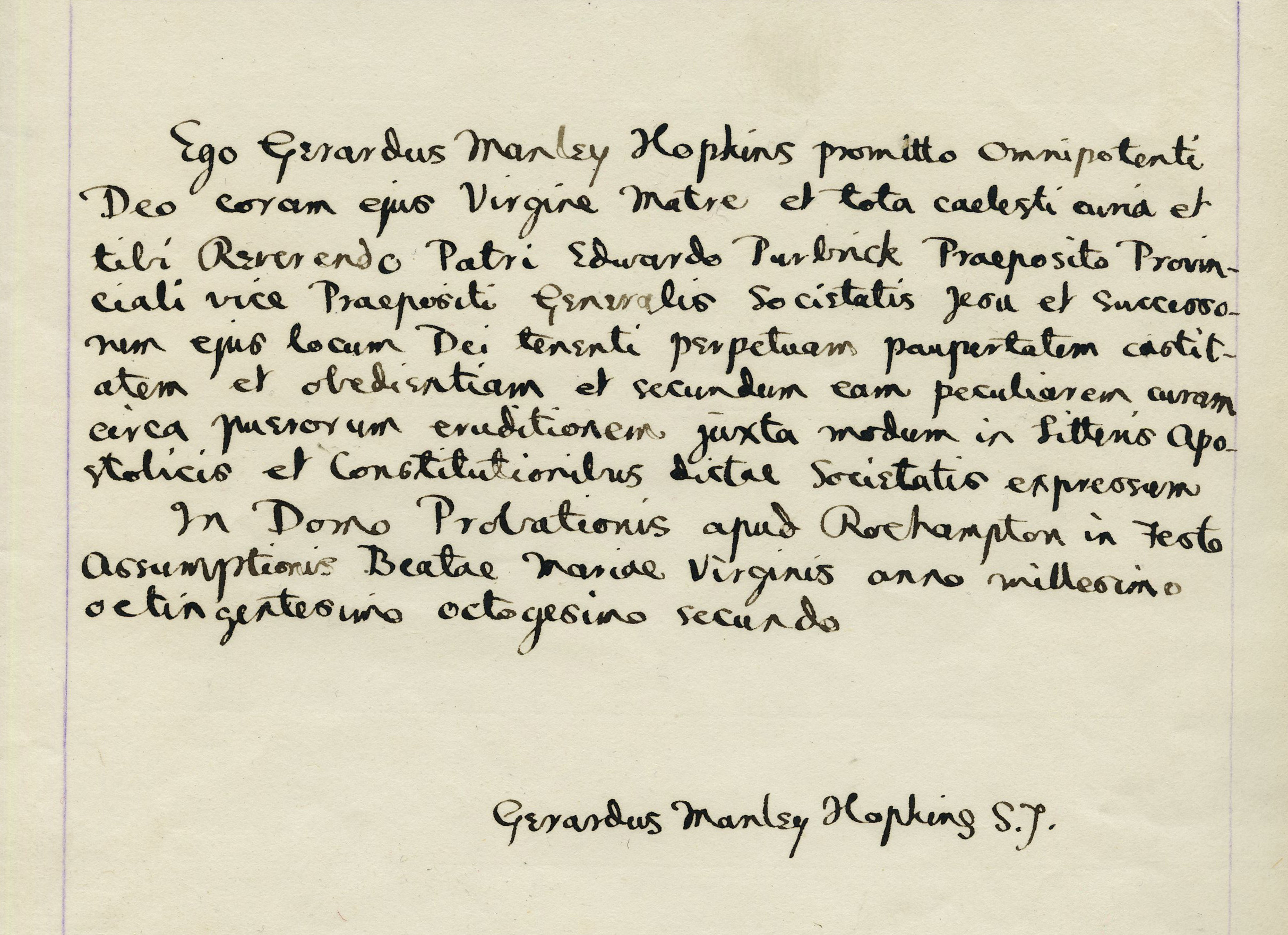150 years ago, on 7 September 1868, Gerard Manley Hopkins entered the Society of Jesus at Manresa, Roehampton. Born in Stratford, Essex in 1844, he received his early education at the Cholmeley Grammar School in Highgate. According to his obituary in Letters and Notices, “from earliest childhood he showed a great talent for drawing, and his work was distinguished for its remarkable delicacy… He had a very exquisite voice and took great interest in music. This, with art and literature, became his special studies.” During his time at Balliol College, Oxford, Hopkins was received into the Catholic Church by John Henry Newman. After completing his studies, he entered the Jesuit Novitiate.

After ordination in 1877, Hopkins began his life as a missioner in London, but also spent some time at Oxford and Liverpool. During his time at Oxford, he was required to fill in as parish priest at St Aloysius’ for Fr Thomas Parkinson SJ, who had been injured after a fall from a cart. Unfortunately, although “he had come [to the Society] with a record of brilliance and with all the enthusiasm of a convert, Hopkins had yet to succeed in the practical, workaday duties with which most Jesuits are expected to cope.” This description of his character finds echoes in reminiscences of contemporary Jesuits in his obituary. “Of his ability I need scarcely speak. He had a distinct dash of genius. His opinions on any subject in Heaven and earth were always worth listening to and always fresh and original.” However, wrote another, “his mind was of too delicate a texture to grapple with the rougher elements of human life”, although “his kindness of heart and unselfishness showed themselves in a thousand ways… The high order of his intellect was at once made evident to all who came into serious contact with him... True it was of a somewhat unpractical turn, but the various and often amusing extravagations into which it was from time to time in consequence beguiled, only added another point of attractiveness to his character.”
 In 1884 he went from Stonyhurst to Dublin after receiving a fellowship at the Royal University, where he taught Greek and Latin. His spare hours where occupied with literary work, putting together a work on British dialects, which he hoped to publish, writing several articles for the Classical Review, and towards the end of his life, he engaged on a critical work of the plays of Aristophanes. Soon after Easter, 1889, Hopkins became ill with typhoid fever and died a few days later, 8 June, aged 45.
In 1884 he went from Stonyhurst to Dublin after receiving a fellowship at the Royal University, where he taught Greek and Latin. His spare hours where occupied with literary work, putting together a work on British dialects, which he hoped to publish, writing several articles for the Classical Review, and towards the end of his life, he engaged on a critical work of the plays of Aristophanes. Soon after Easter, 1889, Hopkins became ill with typhoid fever and died a few days later, 8 June, aged 45.
To read Hopkins’ obituary, one hardly gets the sense that he was one of the most important poets of the Victorian era. It is also perhaps surprisingly short, about six pages in total, and although it hints at a remarkable man, it does not show any inkling of the fame or recognition that he would later receive. Although it stresses his knowledge and passion for literature, the only mention of poetry does not refer to his own work: “His acquaintance with poetry was extensive, and his judgement differed upon various poets considerably from what most people entertain.” This reflects the fact that during his lifetime and up to the early 20th century, Hopkins’ work remained largely unknown until his Oxford friend, the Poet Laureate Robert Bridges, published a volume of his poetry in 1918. On the publication of its second edition in 1930, his work was finally recognised as among the most original and powerful poetry of his time.
Among the Jesuits in Britain Archives, there are a few items in Hopkins’ own handwriting. These include his final vows (above), a transcription of a poem by Digby Mackworth Dolben (who Hopkins met in 1865), and a Porter’s Journal from the noviciate at Manresa, covering December 1869 to October 1871. The Porter, or Beadle, was a student assigned with the task of recording daily events. In the earliest part of the journal, one can easily recognise Hopkins’ distinctive handwriting, and an entry partway through the volume marks his departure for the Scholasticate.
If you are interested in Gerard Manley Hopkins or the work of the archives in general, please contact us. Collections of Hopkins’ papers can be found at Campion Hall, Balliol College, Oxford, and Gonzaga University, Washington. The British Jesuit Alfred Thomas devoted much of his life to the study of Hopkins, and his papers are open at the discretion of the Archivist.
Mary Allen, Deputy Archivist